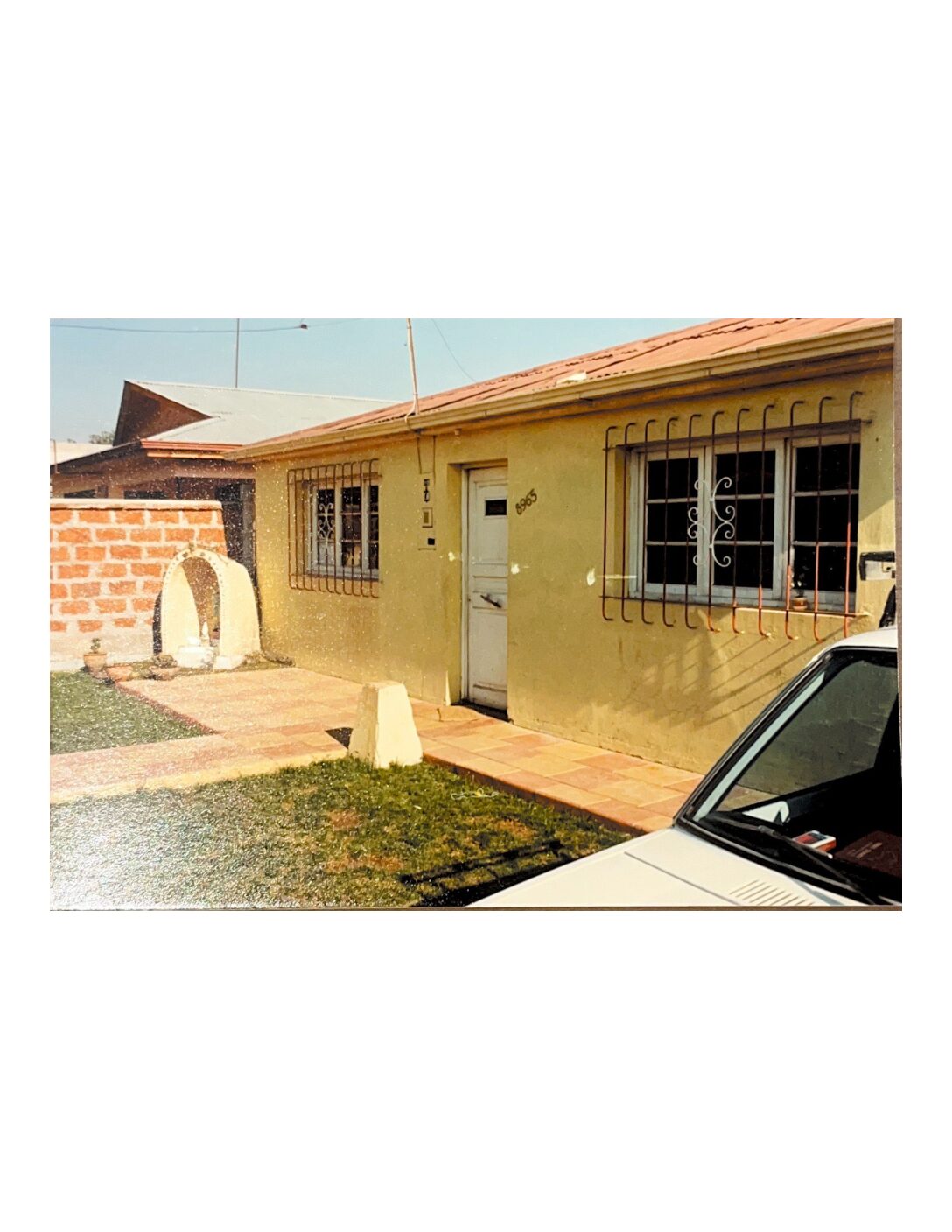In 1981, Steve Reifenberg had recently graduated from the University of Notre Dame with a philosophy degree. For the year following his graduation, he had been a high school teacher with the idea that he would go to law school in the future. While pondering over the next steps of his life, Steve reconnected with a friend from Notre Dame who had finished two years of volunteering on a Notre Dame program in Santiago, Chile at St. George’s College, a Holy Cross school. He connected Steve with Olga Diaz, who a few years earlier had begun a small, privately run orphanage or “hogar” called “Domingo Savio.”
Steve recalls writing a hand-written letter to Olga Díaz, and within a few weeks, Olga responded that she would happily welcome Steve to Domingo Savio as a volunteer.
In November of 1982, Steve arrived at the small house at Rosa Ester 3281 in La Granja municipality, south of Santiago. This became his home for the next year where he worked alongside Olga and others to care for, teach, and be in community with the thirteen children of the orphanage. During his time there, Steve improved his Spanish, helping Olga and the other tíos and tías completing daily chores, but more importantly, he discovered the power of accompaniment, the importance of walking alongside others, and how to engage in a mutual exchange of ideas, skills, and knowledge with others.
Even though I had landed on their doorstep with plans to be “their helper,” they [Domingo Savio] accompanied me, and during those first two years and the many intervening years, I think I have learned – and am still learning– to accompany them as well. For all my mistakes, something worked well in our time together… I’ve realized that we have been on a journey accompanying one another for a long time…My life has been enormously enriched in the process, and the concept of accompaniment has given me a new lens through which to understand my own experiences, teaching, and much more.
Professor Steve Reifenberg, “Teaching Accompaniment”
Despite his original plans to stay for a year, Steve remained with Domingo Savio as a volunteer for two years, and during his second year, he was able to help the tíos and tías with fundraising over $15,000 to purchase a new home in La Granja, where Domingo Savio is still located today. Although the “hogar” no longer functions as an orphanage, Domingo Savio remains a vital part of the local community serving as a community center for children, families, and seniors.
The Creation of the Domingo Savio Institute
After his initial two years volunteering at Domingo Savio, Steve was unsure if he would travel to Chile again. However, year after year, Steve would find himself back in Chile for different professional and personal reasons, and he would always connect with Olga, the kids, and the foundation. Within time, Domingo Savio created a board of directors in Santiago, and Steve joined that board.
Together, Domingo Savio and the Chilean board continued collaborating to raise funds, develop the foundation and its programming, and serve the kids of the La Granja community. During this period, the mission of Domingo Savio shifted from functioning as a residential orphanage to becoming a community center for children, families, and elderly community members.
In 2006, along with former Domingo Savio volunteers from the United States, Daniel Saver, Kelly O’Rourke, and Karen Bloom, Steve helped found the US non-profit organization, the Domingo Savio Institute, that helps raise awareness about the work of Domingo Savio and raise donations for the organization.
A 501(c)(3) nonprofit organization based in the United States, the Doming Savio Institue provides institutional support to Domingo Savio, and works closely with the Chilean board.
Steve Reifenberg, Kelly O’Rourke, Daniel Saver, and Karen Bloom are active members of the Domingo Savio Institute board. Julie Hersh and Terry Coonan serve as board honorees. Learn more about each board member through their biographies.
